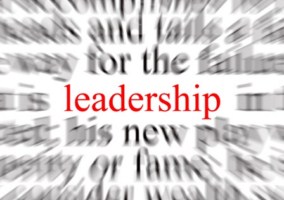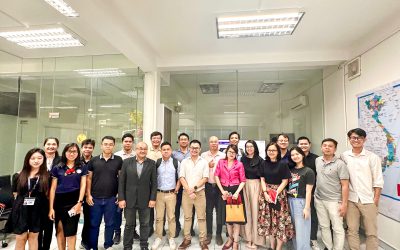
Many years of experience in Exploring have shown that good leadership is a result of the
careful application of 11 skills that any post leader or officer can learn to use. With practice, these
skills can become a part of the adult’s or youth officer’s leadership style and will prove helpful in
Exploring and all other leadership situations.
UNDERSTANDING THE NEEDS AND CHARACTERISTICS OF THE POST
Each individual participant of the group has certain needs and characteristics.
1. A leader should understand his or her own needs and characteristics.
2. A leader should understand the needs and characteristics of each participant of the group. This helps the leader to deal with each person as an individual, to treat that individual with respect, and to help the person grow.
3. This understanding helps in planning the program and in getting things done.
4. This understanding creates trust and builds confidence among group participants.
Through conversation and informal surveys of post participants, try to find out:
• Why they joined your post
• What they expect from the post’s program
• What their major interests are
• What their plans for the future are
KNOWING AND USING THE RESOURCES OF THE GROUP
Resources include all those things necessary to do a job. Resources also include people, because people have knowledge and skills. Knowledge is what a person learns through familiarity or experience—what you know. Skill is the ability to use what you know. Attitude includes the desire to do something—motivation—and the belief that you can do it—confidence. When the leader uses the knowledge and skills of group participants to get a job done, the participants gain experience and improve skills. They also develop a positive attitude toward using a skill.
• Keep the post’s program capability inventory up-todate and use it in planning.
• Understand the purpose and resources of your participating organization.
• Survey the participants’ parents; include them in your program capability inventory.
• Find out your post participants’ skills, interests, and resources.
COMMUNICATING
To improve your skills in getting information:
• Pay attention and listen carefully.
• Make notes and sketches.
• Ask questions and repeat your understanding of what was said.
To improve your skills in giving information:
• Be sure others are listening before you speak.
• Speak slowly and clearly.
• Draw diagrams, if needed. Ask those receiving information to take notes.
• Have the listeners repeat their understanding of what was said. Encourage questions.
PLANNING
Planning is an important part of everything we do in Exploring. The following is a simple process for planning:
• Consider the task and objectives. What do you want to accomplish?ADERSHIP SKILLS 2
• Consider the resources—equipment, knowledge, skills, and attitudes.
• Consider the alternatives. Brainstorm.
• Reach a decision, evaluating each option.
• Write the plan down and review it with the post.
• Execute the plan.
• Evaluate the plan.
CONTROLLING GROUP PERFORMANCE
A leader influences the performance of the group and individual participants through his or her actions. Why is control needed? A group needs control as an engine needs a throttle—
to keep it from running itself into the ground. A group works together best when everybody is headed in the same direction. If a plan is to be properly carried out, someone must lead the effort. Control is a function that the group assigns to the leader to get the job done.
Control happens as a result of recognizing the difference between where the group is and where the group is going. The leader is responsible for developing a plan to help the group get to its goal. Setting the example is the most effective way of controlling the group. When working with post participants, do the following:
• Continually observe the group. Know what is happening and the attitude of the group.
• Make your instructions clear and pertinent.
• Pitch in and help when necessary.
• Quickly deal with disruption. Guide the post toward self-discipline.
EVALUATING
Evaluating helps measure the performance of a group in getting a job done and working together. It suggests ways in which the group can improve its performance. There are two basic categories of evaluation questions. After any event or activity, ask these questions:
Getting the job done
• Was the job done?
• Was the job done right?
• Was the job done on time?
Keeping the group together
• Were relationships between group participants helped or hurt?
• Was participation equally distributed among group participants?
• Did the group enjoy the activity?
• Did the group handle conflicts well?
SETTING THE EXAMPLE
Setting the example is probably the most important leadership skill. It is the most effective way to show others the proper way to conduct themselves, and is even more effective than verbal communication. Without this skill, all the other skills will be useless. One way to think about setting the example is to imagine yourself as part of a group and think about how you would like your leader to act.
SHARING LEADERSHIP
While there are various ways to exercise leadership, the goal of Exploring leadership is exemplified in a quote from the ancient Chinese philosopher, Lao-Tzu: “But of a good leader . . . When the work is done, his aim fulfilled, they will say, ‘We did this ourselves.’ ”
The Exploring leader wants to give post participants the skills he or she possesses, not to use those skills in ways that keep the post weak or dependent. He or she offers leadership opportunities to post participants and teaches them the skills they need.
COUNSELING
Counseling is important
• To help people solve problems
• To encourage or reassure
• To help an Explorer reach his or her potential
Counseling can be effective when a person is
• Undecided—he or she can’t make a decision
• Confused—he or she doesn’t have enough information or has too much information
• Locked in—he or she doesn’t know any alternativesLEADERSHIP SKILLS 3
How do you counsel?
• First, try to understand the situation. Listen carefully.
Summarize. Check the facts. Paraphrase to make sure you understand.
• Second, help list as many options as possible.
• Third, help list the disadvantages of the options.
• Fourth, help list the advantages of the options.
• Finally, let the person decide on a solution. The counselor’s role is to give encouragement and information, not advice.
REPRESENTING THE GROUP
Where do you represent the post? Post leaders represent the post at post committee meetings, Advisors’ meetings, officers’ meetings, and planning conferences, and to the participating organization.
The leader represents the post in two situations:
• Without consultation—when he or she doesn’t have the opportunity to consult with post officers about a decision
• With consultation—when he or she can meet with post officers about the issue In some cases the leader must represent the post’s decision exactly; in other cases, he or she must use
independent judgment. You will need to solicit and analyze participants’ views and attempt to represent those views within the guidelines of your post, your participating organization, and Exploring.
EFFECTIVE TEACHING
Effective teaching is a process to increase the knowledge, skills, and attitudes of the group and its participants. The focus is on learning, not teaching. For teaching to be effective, learning must take place.
The steps of effective teaching include
• Choosing the learning objectives
• Providing a discovery experience that helps the learner understand the need for the skill
• Demonstrating or explaining the skill
• Allowing the learner to practice the skill
• Evaluating the process




